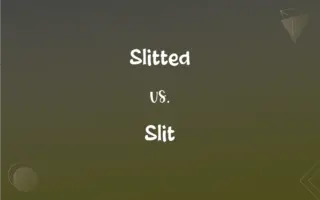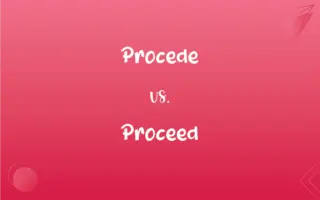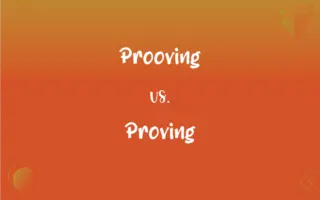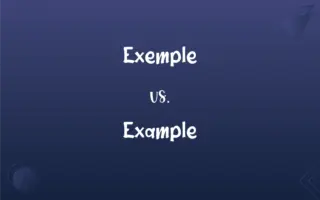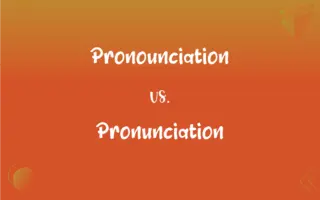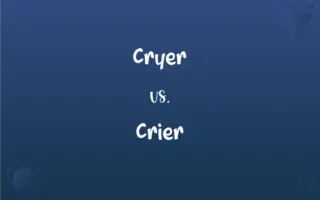Fianite vs. Finite: Mastering the Correct Spelling
Edited by Harlon Moss || By Janet White || Updated on March 12, 2024
"Fianite" is incorrect; the correct spelling is "Finite," which denotes something with limits or bounds.
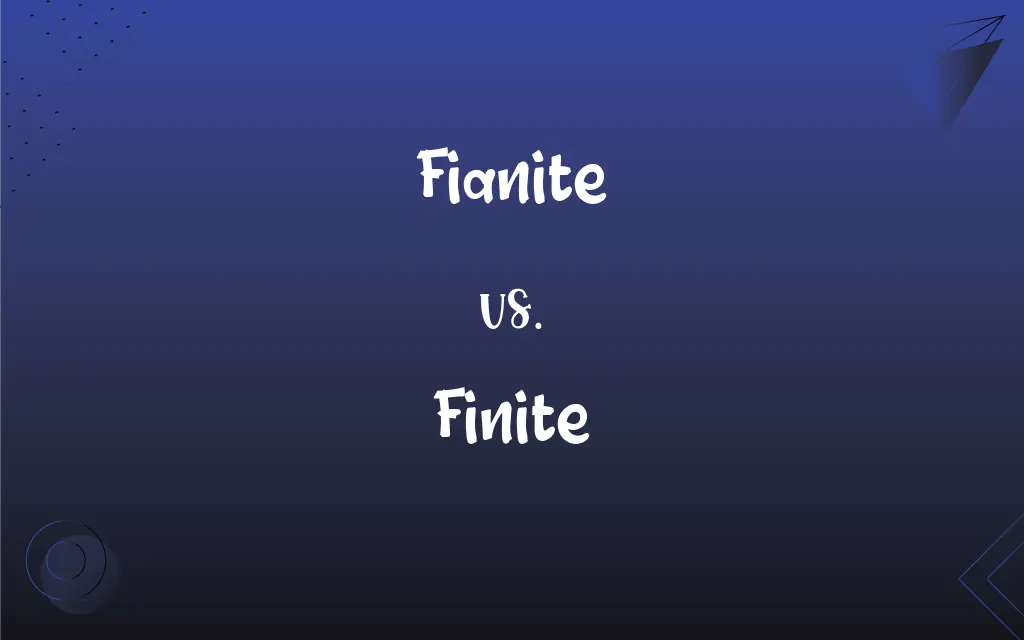
Which is correct: Fianite or Finite
How to spell Finite?

Fianite is Incorrect

Finite is Correct
ADVERTISEMENT
Key Differences
Recollecting the word “finish” can also help associate with “finite,” both having the concept of an end.
Note that “Finite” contains “-ite” not “-aite”.
Practicing the spelling regularly will reinforce memory.
To remember “Finite,” think of the root “fin” which means end, indicating limits.
Correct usage of Finite
The universe is not believed to be fianite.
The universe is not believed to be finite.
ADVERTISEMENT
There's a fianite number of tickets available for the concert.
There's a finite number of tickets available for the concert.
My patience for this project is fianite.
My patience for this project is finite.
The company's budget for this quarter is fianite.
The company's budget for this quarter is finite.
Our resources are fianite and must be used wisely.
Our resources are finite and must be used wisely.
Finite Definitions
Finite means having bounds or limits. Example
The resources on our planet are finite.
Finite describes a condition of being limited or restricted. Example
The universe is considered to be finite.
Finite represents something measurable and countable. Example
There is a finite number of solutions to this problem.
Finite indicates being subject to limitations or bounds. Example
The finite capacity of the tank determines how much it can hold.
Finite implies something that is not infinite; it has an end or limitation. Example
We have a finite amount of time to complete this project.
Having bounds; limited
A finite list of choices.
Our finite fossil fuel reserves.
Existing, persisting, or enduring for a limited time only; impermanent.
Being neither infinite nor infinitesimal.
Having a positive or negative numerical value; not zero.
Possible to reach or exceed by counting. Used of a number.
Having a limited number of elements. Used of a set.
(Grammar) Of or relating to any of the forms of a verb that can occur on their own in a main clause and that can formally express distinctions in person, number, tense, mood, and voice, often by means of conjugation, as the verb sees in She sees the sign.
A finite thing.
Having an end or limit; (of a quantity) constrained by bounds; (of a set) whose number of elements is a natural number.
Limited by (i.e. inflected for) person or number.
The "goes" in "he goes" is a finite form of a verb, the third-person singular.
Having a limit; limited in quantity, degree, or capacity; bounded; - opposed to infinite; as, finite number; finite existence; a finite being; a finite mind; finite duration.
Bounded or limited in magnitude or spatial or temporal extent
Of verbs; relating to forms of the verb that are limited in time by a tense and (usually) show agreement with number and person
Finite Sentences
We only have a finite amount of time to complete this task.
There are a finite number of solutions to this problem.
Her knowledge on the subject is finite.
The universe is vast, but still finite in its extent.
Our project has a finite deadline we must meet.
The finite nature of fossil fuels makes renewable energy important.
The world's water supply is finite and precious.
This game has a finite number of levels to complete.
She realized that her opportunities were not infinite, but finite.
The finite list of ingredients made shopping easy.
The finite amount of data made analysis straightforward.
A finite set of rules governs the competition.
Every finite action contributes to the larger outcome.
He approached the problem with a finite set of tools.
The budget allocates a finite sum to each department.
The finite nature of life emphasizes the importance of living fully.
Finite resources require sustainable management.
Understanding finite limits helps in resource planning.
They faced the challenge with a finite supply of patience.
The finite capacity of the venue limited the number of attendees.
Our class has a finite number of seats available.
The artist chose a finite palette of colors for her painting.
The book series concluded with a finite ending.
The scientist explained the concept of finite energy.
Finite resources dictate the need for conservation efforts.
Finite Idioms & Phrases
A finite touch
Having a precise or definite limit or end.
The project needed a finite touch to ensure completion on time.
Finite resources, infinite possibilities
Even with limited resources, the potential for creativity and solutions is limitless.
The small startup operated on the principle of finite resources, infinite possibilities.
Finite but flexible
Limited in scope or resources but adaptable to change.
The project plan is finite but flexible, allowing for unexpected adjustments.
Finite horizon
The limit of one's knowledge or future planning.
The scientist worked with a finite horizon but hoped for breakthroughs.
To reach a finite point
To come to a definite end.
Every discussion must eventually reach a finite point.
The finite factor
The element that imposes limits on a situation or resource.
In budget discussions, money is always the finite factor.
Crossing the finite divide
Moving from theoretical or unlimited possibilities to practical, limited realities.
Transitioning from planning to execution involves crossing the finite divide.
Marking finite boundaries
Establishing clear limits.
The treaty was about marking finite boundaries between the two countries.
The finite line
The definite or clear limit of something.
There's a finite line between confidence and arrogance.
A finite window of opportunity
A limited period during which something can be done or achieved.
We have a finite window of opportunity to apply for the grant.
A finite circle
A small, closed group with limited membership.
The club was known as a finite circle of enthusiasts.
Within finite bounds
Within specific, limited parameters.
The team worked within finite bounds to stay under budget.
Finite footsteps
Measurable, limited progress.
The project advanced in finite footsteps, ensuring each phase was completed before moving on.
Finite slice of time
A short, specific period.
The documentary captures a finite slice of history.
Harnessing finite energies
Efficiently using limited resources.
The community focused on harnessing finite energies to power their homes.
Navigating finite landscapes
Dealing with limited options or resources.
The team navigated finite landscapes to find the best route forward.
Finite chapters
Distinct, limited sections of a larger story or process.
The book is divided into finite chapters, each focusing on a different theme.
A finite reserve
A limited stock or supply of something.
The country relied on a finite reserve of natural gas.
The finite edge
The point at which something no longer continues or exists.
The artist's work explores the finite edge of human perception.
Within a finite range
Limited to a specific scope or area.
The study's findings apply only within a finite range of conditions.
FAQs
Why is it called Finite?
It is called Finite because it denotes something that has limits or bounds.
What is the verb form of Finite?
Finite is an adjective; however, "to confine" or "to limit" could be related verbs.
What is the plural form of Finite?
Finite, being an adjective, does not have a plural form.
Which preposition is used with Finite?
“Of” is often used with Finite, as in “finite amount of.”
Is Finite a noun or adjective?
Finite is an adjective.
Is Finite an adverb?
No, Finite is not an adverb.
What is the root word of Finite?
The root word is “fin,” meaning “end”.
Which vowel is used before Finite?
The vowel “a” is commonly used before Finite, as in “a finite.”
What is the pronunciation of Finite?
Finite is pronounced as /ˈfaɪnaɪt/.
Which conjunction is used with Finite?
No specific conjunction is associated with Finite; it depends on the sentence structure.
Is Finite a collective noun?
No, Finite is not a collective noun; it is an adjective.
Which article is used with Finite?
The indefinite article “a” is typically used with Finite.
Is the Finite term a metaphor?
No, Finite is not generally used as a metaphor; it literally refers to something limited.
What is the singular form of Finite?
Finite is an adjective and does not have a singular or plural form.
Is Finite a vowel or consonant?
The word Finite consists of both vowels and consonants.
What part of speech is Finite?
Finite is an adjective.
Which determiner is used with Finite?
Determiners like “this” or “that” can be used with Finite, depending on context.
Is Finite a countable noun?
No, Finite is not a noun; it is an adjective.
How do we divide Finite into syllables?
Fi-nite.
What is a stressed syllable in Finite?
The first syllable “Fi” is stressed in Finite.
What is the second form of Finite?
As an adjective, Finite does not have different forms.
Is Finite an abstract noun?
No, Finite is an adjective.
Is Finite a negative or positive word?
Finite is neutral; it can be negative or positive depending on the context.
Is the word Finite imperative?
No, Finite is not imperative; it is descriptive.
How many syllables are in Finite?
Finite has two syllables.
What is another term for Finite?
Another term for Finite is “limited.”
What is the opposite of Finite?
The opposite of Finite is “infinite.”
What is the first form of Finite?
Finite is an adjective and does not have forms.
What is the third form of Finite?
Finite does not have different forms as it is an adjective.
How is Finite used in a sentence?
"The team had a finite amount of resources to complete the project."
About Author
Written by
Janet WhiteJanet White has been an esteemed writer and blogger for Difference Wiki. Holding a Master's degree in Science and Medical Journalism from the prestigious Boston University, she has consistently demonstrated her expertise and passion for her field. When she's not immersed in her work, Janet relishes her time exercising, delving into a good book, and cherishing moments with friends and family.
Edited by
Harlon MossHarlon is a seasoned quality moderator and accomplished content writer for Difference Wiki. An alumnus of the prestigious University of California, he earned his degree in Computer Science. Leveraging his academic background, Harlon brings a meticulous and informed perspective to his work, ensuring content accuracy and excellence.
